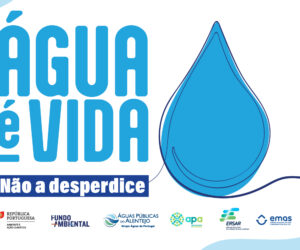Due to the Jornal de Notícias article (JN) of 10 March under the title "Road accidents with wild animals double in four years", we bring you Lidador News again (LN) the topic of road accidents involving animals, because it continues to be a phenomenon with no solution in sight and which contributes to the severity of national road accidents.
Colonel of the GNR
Master in Law and Security and Homeland Security Auditor
In the JN article it is stated that “the number of road accidents involving animals has been rising in recent years, with increases 101% regarding wild animals and 54% in relation to domestic animals … altogether, involving wild and household animals, between 2019 and 2023, GNR registered 13.554 road accidents in various types of roads, of which there are two dead, 16 serious injuries and 470 Light ”, having 2019 was recorded 574 Wild Animal Accidents, in 2020 were 836, in 2021 rose to 1.065, in 2022 fired to 1.393 is at 2023 a slight decide to the 1.155 (still provisional data).
As already mentioned this subject was here in LN addressed in the article “road accidents involving animals", dated 21 July 2015, whose article was sustained in a study published in the magazine “Biological Park”In March 2014, also having several social communication bodies being interested in the subject at the time, as an example is the public article of 18 January 2014 with the title "Loose horses cause road accidents across the country", The Diário de Notícias article, With the title “Animals provoke 1700 road accidents ”, dated 14 February 2014 or the TVI24 piece of the same day called “GNR counted 1.799 road accidents involving animals".
To know all the conclusions of the study, We propose a click on the indicated links, which was based on the work 1.799 road claims involving animal collisions or run over, reported in 2013 by GNR, with a result of these accidents, a morte de cerca de 2.000 domestic or wild animals, where about half of the dead animals were dogs, also where the wild animals are found in large numbers, mostly boars, foxes and deer.
Of 1.799 animal accidents, that occurred in the GNR area, resulted in light injuries in 77 conductors and/or passengers and serious injuries in three, not being registered any fatality.
After this study, only 2018 through “Resolution of the Assembly of the Republic No. 58/2018", of 28 February 2018, The government was recommended for the government to monitor and minimize the run -over animal in the National Road Network, whose measures included the constitution of a “multidisciplinary working group”, that was created three years later, in 2021, fur No. office 8157/2021, of 18 August, with the mission of elaborating the “Animal Running and Running Monitoring and Minimization Program in the National Road Network”, that should be presented until 30 September 2021, shall take into account the content of the recommended in the said Resolution of the Assembly of the Republic No. 59/2018, and, Based on the impact assessment of animal running over the National Road Network, should “define priorities at the level of implementation of standardized methodologies for the implementation of a national monitoring network, as well as the implementation and testing of measures that reduce this run over ”.
Three years after the creation of the working group there is no known report or program, verifying that the only entity, that publishes data on the subject is the Infrastructure Portugal (IP), in which 18 July 2023 published the “Synthesis Report” of “Monitoring Fauna Mortality on the 2022 IP roads”, where it is mentioned that in a total of 2.147 Road runnings on roads under the direct management of IP, increasing in about 19% the amount recorded in 2021 (1.804), but 23,4% lower than the average value of the years 2015 a 2019, (2.803).
From analysis to data released by IP and GNR it is found that both institutions have different numbers, Probably because IP registers “animal run -over” and the GNR records “animal accidents”, concluded by the need for a single document, that can congregate the data collected by all entities contained in Order No. 8157/2021, of 18 August, that are: The Portuguese Environment Agency; The National Road Safety Authority; The Institute for Nature and Forest Conservation; A Guarda Nacional Republicana; The Public Security Police; The Infrastructure Portugal; The CIMBAL Intermunicipal Council meets today, and ; The Portuguese Confederation of Environmental Defense Associations.
It is concluded that past 10 years of the study of 2014, The phenomenon of animal accidents remains without solution, because the severity for drivers and passengers got worse, considering that between 2019 and 2023 there is to regret two people dead and almost 500 injured, consequences that contribute to further aggravating the national road accident rates, who continue to present numbers that the responsible authorities have not been able to prevent and whose public policies fear not to get out of paper.
We can not, end without the necessary advice to prevent road accidents with animals, Therefore in periods and places of most likely to find an animal on the road, it is recommended that it is circled with a redoubled caution, slowing down and meet the indicator signaling danger crossing animals, domestic or wild, drivers should be adopted in all situations to adopt on the road, adequate conduction to avoid animal accidents and avoid the resulting consequences, either for animals, both for people and vehicles.
However when an animal on the road is found to avoid honking or signs of lights, why or scare the animal or linked together in the, Avoid sudden deviations (twists) which may cause the vehicle to screening, slowly reduce the speed until you can get around it safely and if you cannot avoid shock, at the time of the clash not post or deviate, as with brake, the front of the car and low if it is a large animal can be designed for glass windshields. Whenever sighting an animal on the road should immediately report this to the GNR, even if the animal is found by the roadside, so that it is collected and also whenever you find a dead animal on the road, so that it is removed.

























